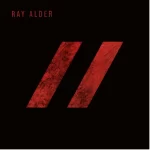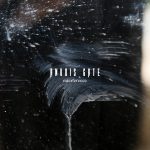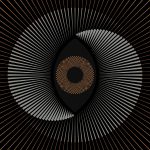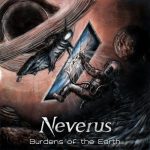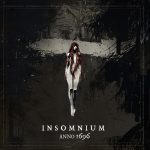Anubis Gate – Interference – Album Review
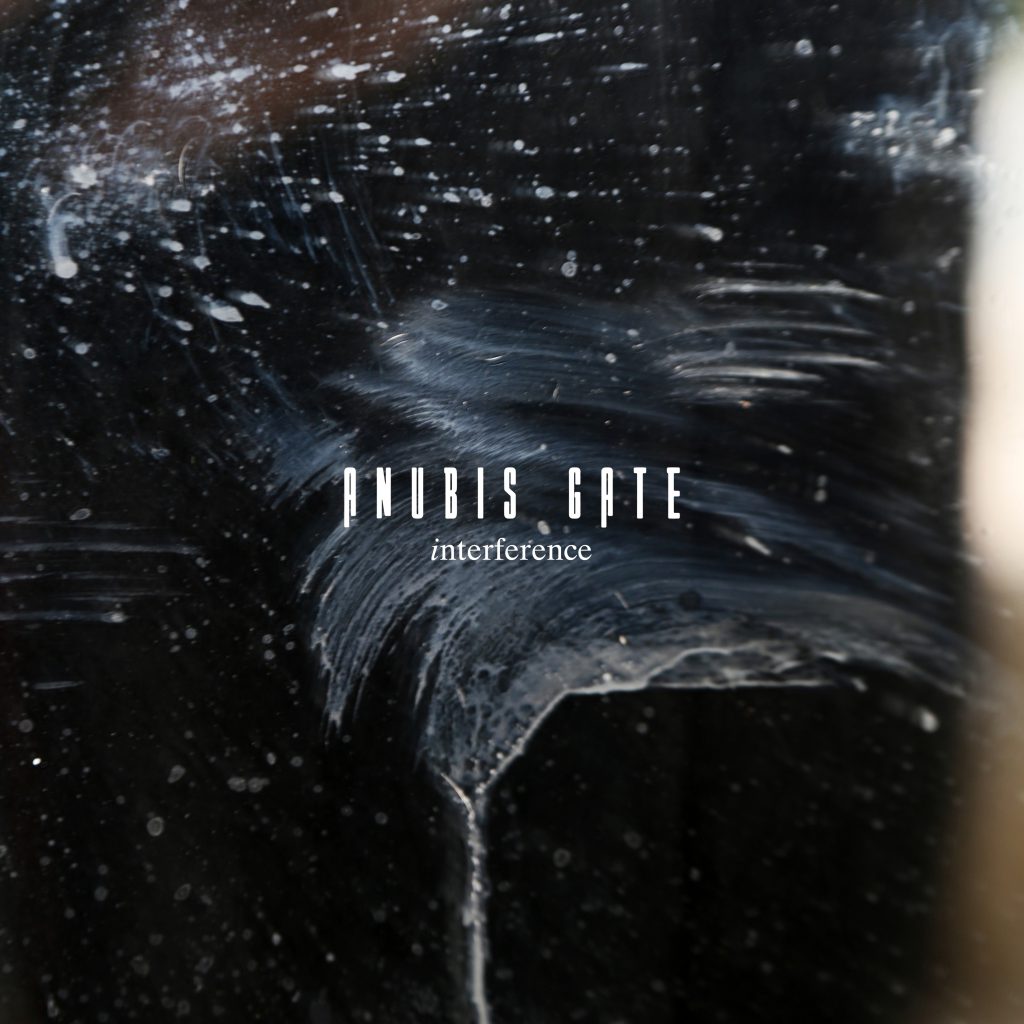
Artist: Anubis Gate
Album Title: Interference
Label: No Dust Records
Date of Release: 2 June 2023
If you’re anything like me, you’ll have your preferred styles of music that you always gravitate towards. Within the amorphous heading of ‘metal’, the possibilities are almost endless, and I will flit from one style to other on a regular basis. I may go through a binge of listening to melodic death metal, power metal, black metal, or even NWOBHM. Since the turn of the millennium, the better part of a quarter of a century ago (feeling old?!), I have loved progressive rock and metal, the latter in particular. I often think it is my favourite of all the various styles of heavy metal, but there are times when I question it. However, just as I begin to think more deeply about such things, an album will come along that just serves to cement the love all over again and prove, without doubt that progressive metal is my number one. Recently, that album has been ’Interference’ by Anubis Gate.
It’s fair to say that the Danes have never been at the very top of the tree for me, but I have always enjoyed their output and respected what they do. With ‘Interference’, though, they have presented something that’s just a little bit different for them, and the previous feelings of enjoyment and respect has been replaced by something more gratifying altogether: love. I adore this album, and this is principally because it does everything that I want from a progressive metal release.
It is technical, it is beautifully melodic, and it has parts that are a little off beat that take time to understand and to grow. The production is wonderfully clear and inviting, the music demonstrates sufficient crunch and heaviness to deserve the ‘metal’ portion of their description, and this body of work is intelligently constructed, allowing a lovely flow and variety. But, above all, it makes me smile. I look forward to every listening opportunity and, with each deep dive, I hear something new, or something different to enjoy.
This in no way a criticism of the music, because these are very few and far between. But in an effort to give you a few early bearings, I hear a few echoes and hints of bands like Threshold, Arjen Lucassen, Vanden Plas, Wolverine, and Dream Theater, just to name a few. Regardless, though, ‘Interference’ remains an album that is very much the work of Anubis Gate, albeit one that’s arguably their most ‘progressive’, complex, and challenging to date. If you’re looking for other headlines or soundbites, ‘Interference’ is perhaps the darkest of their career, too. Dark? Progressive? Melodic? Is there any wonder why I love this record?
Not even the introduction of a saxophone within a couple of the songs, most notably ‘Dissonance Consonance’ situated mid-way through the record can put me off. In keeping with its title, the song has a touch of dissonance about it, certainly to begin with at it builds from very humble beginnings via some initially odd, almost jarring notes, chord progressions, and time signatures. These return throughout the song, with greater intensity too, at points. It is clever, because not only do you warm to it with repeated spins, it provides greater impact to the wonderfully warm melodies that eventually emerge. The sax is used sparingly, and more as an extra layer in the composition, and so it just about fits without sending me running and crying towards the exit.
Even the 66-minute run-time doesn’t faze me or bring with it the usual criticisms over length, or a lack of editing. This is because there’s nothing that I can point to that I’d want to remove, or change. So, ten songs at an average of over six-and-a-half minutes each, is what we get and what I’ll happily stick with, thank you.

What I like most of all from the quartet of bassist/vocalist Henrik Fevre, guitarist/keyboardist Kim Olesen, guitarist Michael Bodin, and drummer Morten Gade Sørensen, however, is the sheer variety on offer throughout. Extended quiet and minimalist passages, blasts of surprisingly heavy intensity, twists and turns aplenty, sombre darkness, gloriously warm light, simplicity, complexity, thought-provoking lyrics – no two songs are truly the same, whilst somehow it all perfectly fits the overall tone, style, and narrative of ‘Interference’.
The opening song, ‘Emergence’ sets a perfect tone for what’s to follow, whilst also laying down a marker to demonstrate that Anubis Gate can shred with the best of them. After a brief, electronic-led intro, the riffs enter, and they hit hard, full of muscularity but with enough cheeky flamboyance. The vocals of Fevre coupled with the fretwork are where the Dream Theater resemblance is at its most pronounced, that is, until the chorus comes in, a delightful AOR-tinged, hook-laden affair that manages to remain bright and breezy despite some thunderous drumming from Sørensen in places. A lovely lead guitar solo adds the icing on the cake for what can only be described as a high-octane opening salvo.
Underlining the variety at work, though, is ‘Ignorance Is Bliss’, a composition that seeks to blend periods of brooding, quiet calm, and delicate minimalism, with bursts of real power. The electronic elements also come to the fore more, with the vocals heavily accented, and the synths creating some interesting textures particularly within the more subtle passages. I hear a fair bit of Threshold in the opening stages of ‘Number Stations’, thanks to the swathes of ‘epic’ keys that bathe the track initially, whilst the bass rumbles authoritatively, the guitar chords ring out strongly, and the drums lay down a more relaxed beat. Oddly, this is possibly the song that, in places, most closely reminds me of their ‘Andromeda Unchained’ output, partly because of the vague sci-fi vibe, and strong keys. The closing minute or so is also utter genius, so brilliant, but I won’t spoil it further if you’ve yet to hear it. Just trust me.
‘The Phoenix’ is one of my personal favourites because, after a bold electronic intro that initially had me raising an eyebrow, the melodic power of the song is off the scale. It feels like the chorus can be split into three parts, beginning with a bridge that is catchy as hell, continuing with a Vanden Plas-like, expansive mid-section, and then closing with a stunningly beautiful vocal-less melody that’s both poignant and euphoric in equal measure. This is one of those traks that you can play over and over again without tiring of it. I know, because I have.
If you’re looking for something properly heavy and ‘in your face’, give ‘Equations’ your attention, as you’ll not be left disappointed. The riffing is bruising, the vocals almost veer into something gruff and we even get treated to some double-pedal action towards the end as Sørensen indulges his inner black/death metal demons. And yet, whilst not the most overtly melodic, the song still has an insidiously catchy quality to it as I’ve discovered.
The incredibly high quality continues into ‘The Intergalactic Dream Of Stardom’, a composition that is best described as one of the most varied on the album. At around nine minutes, it’d have need to be, but as it is, it skips along effortlessly. Again, the intro is quiet and subtle, just vocals and effect-laden guitars to begin with. It carries an ominous darkness with it, particularly as it builds. Sharp, heavy riffing and pinpoint rhythms drive things along, alongside pronounced synths, whilst there’s a chorus to die for that emerges when least expected, elevating the song ever higher in my estimations. Unless you’re listening carefully, it’s entirely possible to miss some of the subtle complexity within this track, too, so clever are some of the ideas and intricacies that are used.
Another favourite has to be ‘World Of Clay’, which is nothing short of marvellous, as it barrels along at a good lick, all bustling energy and galloping tempos. I love the urgency of it, and the way that it doesn’t let up for more than a few of the briefest of moments in the first half. The chorus is adrenaline-fuelled, a catchy-as-hell affair that’s, if anything, the most powerful aspect of the entire song. And, whilst the second half sees a change in pace to something slower, with a churning, lurching quality to it, the lead solos are brisk affairs, and before you realise it, you’re carried off on another strong gust, to be left dazed, confused, but thoroughly energised at its close.
The title track features the voice of Lacy Mucklow at the outset, talking to us about visualising a ‘perfect circle’. As my social media acquaintance speaks, the track slowly comes to life around her, but taking its sweet time to reach its full power. It’s definitely a darker, more sombre track, but one that is imbued with so much atmosphere, that sweeps you up and becomes all-encompassing. The melodies are once again rather insidious but, with time and attention, incredibly arresting and addictive, particularly within the chorus. I also love the blend of slow, minimal riffs overlaid with tight, precise, and swift lead lines in the latter stages. How this song is around ten minutes, I’ll never know.
The album is brought to a close via the moody ‘Absence’ that begins and ends delicately, interjected by a thunderous mid-section complete with more chunky riffing, huge atmospheres, and passionate vocals. For one final time, the melodies are gorgeous, whilst the fragile, emotive lead guitar work is really beautiful.
As I’ve made very clear by now, I love this album. 2023 has already released some genuinely thrilling progressive music, but ‘Interference’ refuses to be left in the shade, instead standing tall and proud alongside everything else that I’ve heard this year. It’ll take a monumentally huge rift in the fabric of reality for Anubis Gate to find their latest creation outside my top ten come the end of the year. If anything, I’m expecting it to be even higher. We shall see. For now, though, do not sleep on this record, for ‘Interference’ is a must-listen for anyone who enjoys quality progressive rock and metal – it’s by far and away my favourite release from the talented Danes of Anubis Gate.
The Score of Much Metal: 96%













